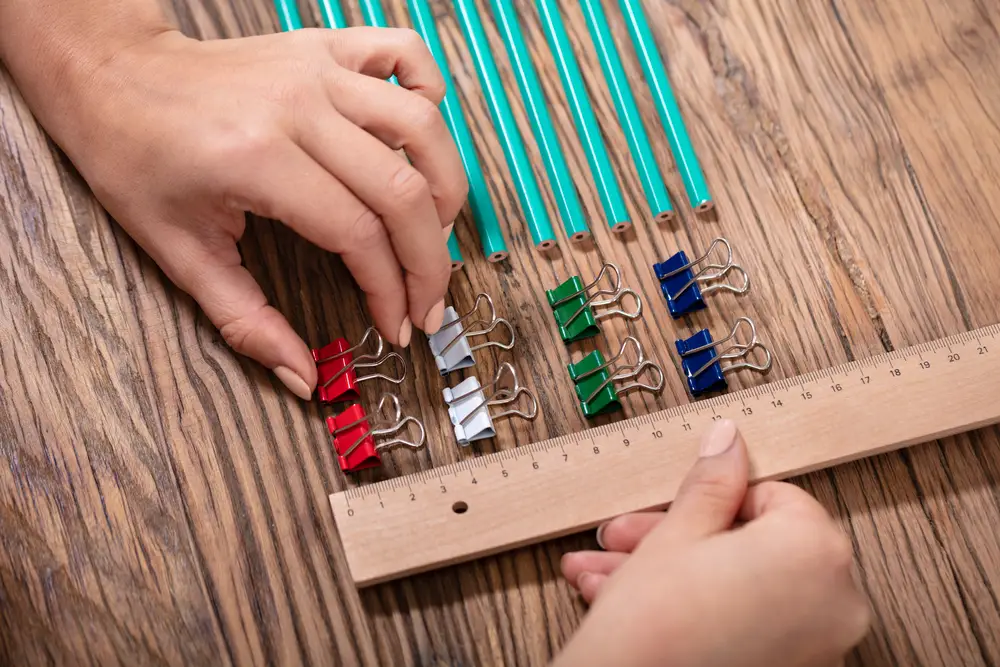As a BetterHelp affiliate, we receive compensation from BetterHelp if you purchase products or services through the links provided
Living with Obsessive-Compulsive Disorder (OCD) can present unique challenges, but you’re not alone in this journey. Support groups offer a community where sharing experiences and coping strategies can provide relief and a deeper understanding of the condition. Being part of a collective that understands the intricacies of OCD can help break the isolation, giving you the comfort of being understood by others who truly know what it’s like.
Finding a support group that resonates with your needs can be a vital step toward managing OCD. Whether a local face-to-face meeting or an online group, these communities are a treasure trove of resources. They offer a blend of empathy, shared learning, and navigational tips for treatment options. Such groups often connect you with specialized therapists who have a robust understanding of OCD, further enhancing the support system tailored to assist you in ongoing recovery and maintenance.
Key Takeaways
- Support groups provide a caring community for individuals with OCD.
- Different types of support groups cater to varying needs and preferences.
- Participating in support groups aids in finding effective coping strategies.
Understanding OCD
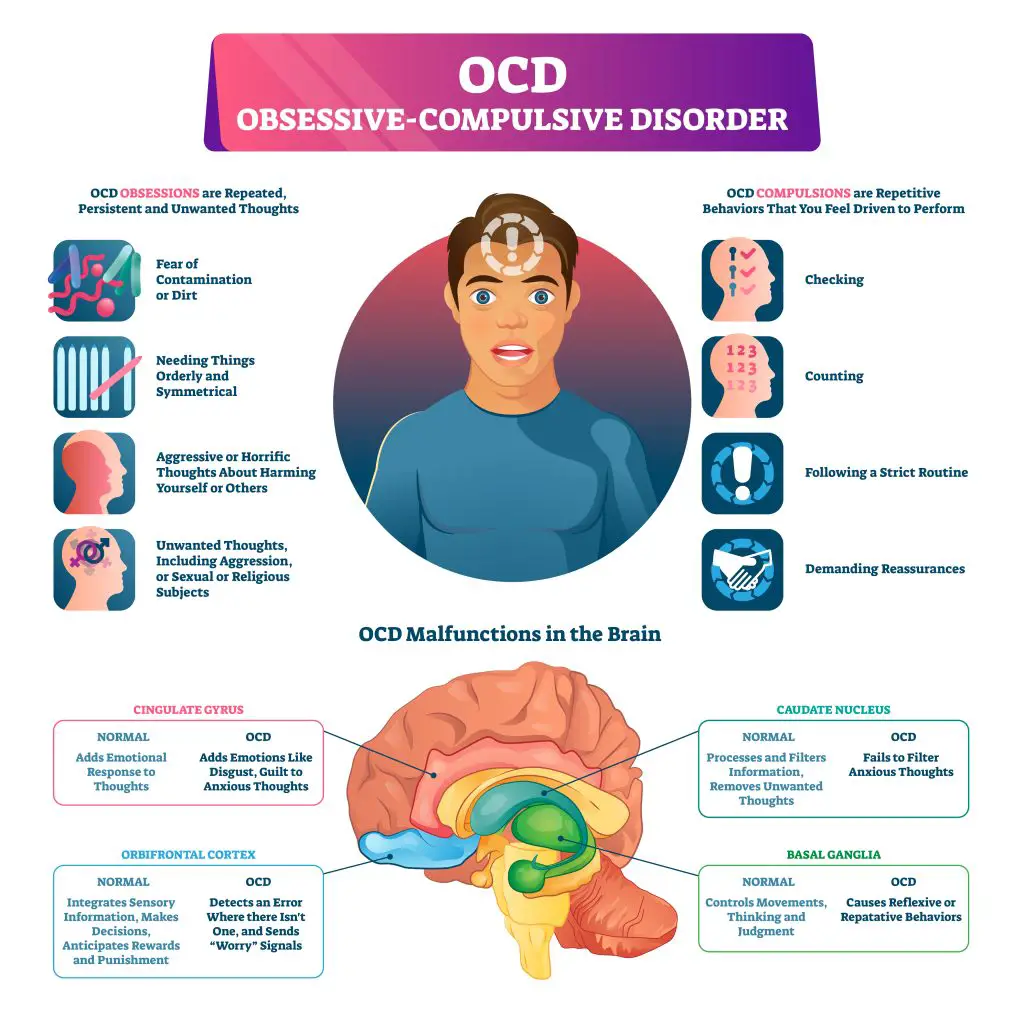 Obsessive-Compulsive Disorder (OCD) can be deeply challenging, but grasping its complexities is a critical step toward support and management.
Obsessive-Compulsive Disorder (OCD) can be deeply challenging, but grasping its complexities is a critical step toward support and management.
Defining OCD
OCD is a mental health condition characterized by a pattern of unwanted thoughts and fears (obsessions) that lead you to do repetitive behaviors (compulsions). These compulsions aim to neutralize the distress caused by the obsessions.
- Obsessions are recurrent and persistent thoughts, impulses, or images that cause significant anxiety or distress.
- Compulsions, or ritualistic behaviors, are repetitive actions you feel driven to perform in response to an obsession.
Common Obsessions and Compulsions
OCD presents itself in various ways, but there are several common themes for the obsessions and compulsions experienced.
Obsessions often include concerns about:
- Contamination (e.g., fear of germs)
- Doubting (e.g., the fear that you’ve left the door unlocked)
- Need for order or symmetry (e.g., alignment of objects)
Compulsions may consist of activities like:
- Excessive cleaning or handwashing
- Checking (e.g., rechecking door locks or appliances)
- Arranging things in a particular, precise way
Related Disorders
While OCD is a unique disorder, there are other related disorders with overlapping symptoms. These can include:
- Body Dysmorphic Disorder (BDD): Obsessive preoccupation with a perceived flaw in appearance.
- Hoarding Disorder: Difficulty discarding items regardless of their actual value.
- Trichotillomania (Hair-Pulling Disorder): Recurrent pulling out of one’s hair.
Remember, if you’re recognizing these symptoms in yourself, seeking help from a professional or a support group can be a vital step toward managing OCD.
The Role of Support Groups
When it comes to tackling Obsessive-Compulsive Disorder (OCD), you’re not alone. Support groups play a vital role in recovery by offering a sense of community and hope.
Benefits of Joining
- Community Feel: In support groups, you’re surrounded by folks who understand what you’re going through. They provide a non-judgmental space where everyone shares the same goal: getting better.
- You get real-life strategies that have worked for others.
- Sharing experiences can foster a strong sense of belonging.
- Emotional Support: Peer support groups offer:
- A shoulder to lean on when you’re feeling down.
- Encouragement and hope when you hit rough patches on your journey.
- Sharing Tips and Insights: Here’s what else you gain:
- A chance to learn practical coping mechanisms.
- Wisdom from others’ experiences in managing symptoms.
Key Takeaway: Joining a support group can provide valuable connections and practical advice that can empower you on your path to recovery.
Finding the Right Group
It’s essential to find a group that resonates with you. Here’s how:
- Research: Look for groups with a solid reputation and positive member feedback.
- Attend Sessions: Sometimes, you might need to attend a few meetings to find where you fit best.
- Consider Format: Some prefer face-to-face meetings, while others opt for online forums for convenience.
Here are strategies to help your search:
- Check with local mental health clinics or hospitals for leads.
- Use reputable online directories that offer curated lists of support groups.
- Before joining, don’t be shy to ask questions about the group’s focus and structure.
Key Takeaway: Finding the right group is about where you feel most valued and understood. Take your time, and you’ll find your crew.
Types of OCD Support Groups
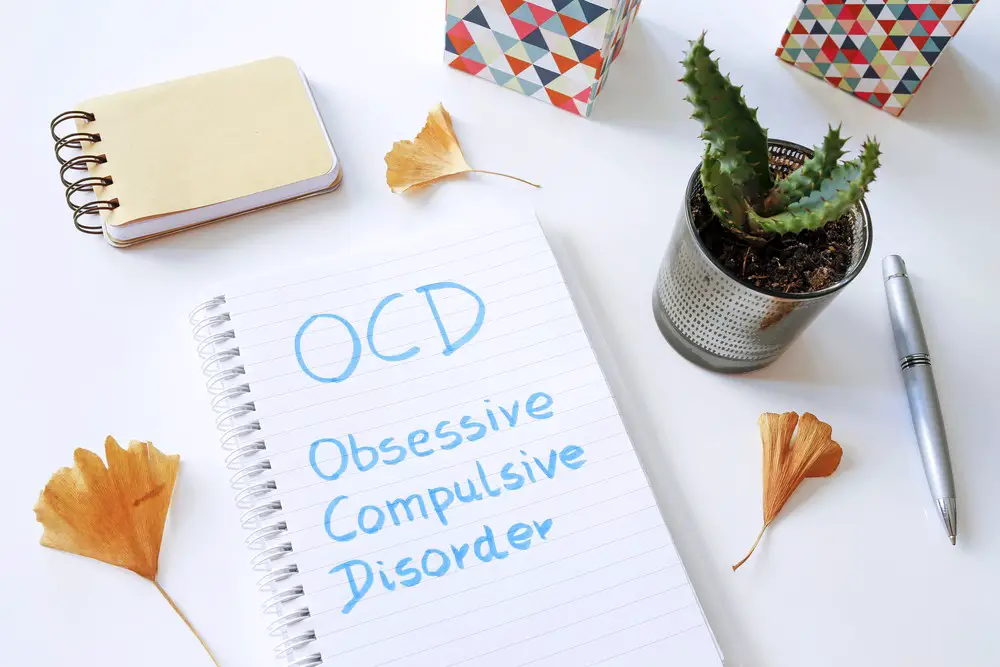 Navigating the landscape of OCD support groups, you’ll find diverse formats tailored to different needs. Some prioritize the guidance of mental health professionals, while others value peer-led camaraderie.
Navigating the landscape of OCD support groups, you’ll find diverse formats tailored to different needs. Some prioritize the guidance of mental health professionals, while others value peer-led camaraderie.
Peer-Led vs. Professional Facilitation
Peer-Led Support Groups
- Entirely run by individuals with OCD.
- Provide an environment of mutual understanding.
Key Takeaway: Peer-led groups offer a unique perspective—a chance to share experiences with others who intimately understand the challenges of living with OCD.
Professional Facilitation
- Led by trained therapists or clinicians.
- Often incorporate structured therapy techniques.
Key Takeaway: Professional groups use therapeutic strategies, which can be particularly beneficial if you’re seeking expert guidance in managing your OCD.
Online vs. In-Person Meetings
Online Support Groups
- Accessible from anywhere with internet connectivity.
- Can maintain anonymity, often a preference for many.
Key Takeaway: Online groups offer convenience and a level of privacy that can make opening up about your OCD easier for you.
In-Person Meetings
- Promote face-to-face interaction and connection.
- May provide a more tangible sense of community.
Key Takeaway: If you prefer the energy and intimacy of physical gatherings, in-person meetings can be a powerful space for support and solidarity.
Online Platforms for OCD Support
Navigating the maze of OCD can be challenging, but you’re not alone. Online platforms have become a vital link for individuals seeking support from the comfort of their homes. These platforms range from Zoom gatherings to diverse social media networks, each offering unique resources and communities.
Zoom Gatherings
- Structured Meetings:
- Hosted by trained moderators or therapists.
- Scheduled sessions provide consistency.
- Private: Your participation remains confidential.
- Interactive Sessions:
- Allows real-time dialogue and Q&A.
- Opportunities for face-to-face connections despite the physical distance.
Key Takeaway: Zoom support groups offer structure and personal interaction, helping you stick to a routine while feeling heard and understood.
Social Media Networks
- Diverse Communities:
- Platforms like Facebook, Reddit, and Twitter feature many OCD support groups.
- Tailored groups exist for different types of OCD.
- Resources and Tips:
- Access a plethora of shared experiences, coping strategies, and encouragement.
- Engage in meaningful discussions or browse anonymously.
Key Takeaway: Social media networks provide a tapestry of perspectives and instantaneous support, enabling you to find your tribe and learn from others’ journeys.
Remember, while online platforms can offer a sense of connection and resources, they should complement but not replace professional medical advice.
Finding Local Support Groups
Navigating the waters to find a local support group for OCD can give you the lifeline you need. Whether in the bustling streets of Jacksonville, FL or through the expansive network of the International OCD Foundation, support is closer than you think.
United States Based Groups
In the US, you have a plethora of options to connect with peers who understand your journey:
- The International OCD Foundation (IOCDF) provides a comprehensive directory where you can find support groups in your area. Use their search tool at iocdf.org to pinpoint groups by state or proximity to cities like Jacksonville, FL.
- Many local hospitals and clinics also host support groups. A quick search online or a call to the nearest facility can often direct you to a nearby group.
Finding the right group might take some time, but it’s a step worth taking for your mental wellness journey.
International Groups
For those living outside the US or seeking a broader perspective, international resources are also within reach:
- The IOCDF has affiliates that span the globe. They can direct you to resources in various countries.
- Many non-US mental health organizations list OCD support groups on their websites, and some offer virtual meetings if local options aren’t available.
You mustn’t let geography limit your support search; global connections can be just as powerful.
Navigating Treatment Options
 Finding the right treatment for OCD isn’t always straightforward, but it’s essential to know that you’ve got tested and effective options at your disposal. Here’s a guide to understanding two evidence-based treatments that can help you or your loved one manage OCD symptoms more effectively.
Finding the right treatment for OCD isn’t always straightforward, but it’s essential to know that you’ve got tested and effective options at your disposal. Here’s a guide to understanding two evidence-based treatments that can help you or your loved one manage OCD symptoms more effectively.
Cognitive Behavioral Therapy
Cognitive Behavioral Therapy (CBT) is a widely recognized and highly effective form of treatment for OCD. Here’s what you need to know:
- Defined: CBT is a type of talk therapy that focuses on identifying and changing negative thought patterns.
- How It Works: You’ll learn to recognize harmful thoughts, assess their accuracy, and apply new, healthier ways of thinking.
- Effectiveness: Studies have consistently shown that CBT can lead to significant improvement in OCD symptoms.
Key Takeaway: CBT empowers you with the tools to tackle OCD by reshaping the way you think about and respond to obsessions.
Exposure and Response Prevention
Exposure and Response Prevention (ERP) is a subset of CBT specifically tailored for OCD:
- Defined: ERP involves gradually exposing you to feared objects or ideas, either directly or in imagination, and then helping you learn to resist the urge to engage in compulsions.
- How It Works: With guidance from a trained therapist, you’ll face your fears without giving in to compulsions, learning that anxiety decreases over time and you can manage it effectively.
- Effectiveness: Evidence suggests that ERP is among the most effective treatments for OCD, often leading to substantial reductions in compulsive behaviors.
Key Takeaway: ERP helps break the cycle of OCD by showing you that you can experience anxiety and discomfort without needing to perform compulsive behaviors.
Specialized Therapy and Therapists
 When facing OCD, it’s crucial to connect with therapists who have specialized training in this area. They’ll offer the tailored support you need, one-on-one or within a group setting.
When facing OCD, it’s crucial to connect with therapists who have specialized training in this area. They’ll offer the tailored support you need, one-on-one or within a group setting.
OCD Specialists
OCD specialists are licensed mental health professionals with dedicated expertise in obsessive-compulsive disorder. Here’s what sets them apart:
- Training: They’ve undergone specialized training in therapies proven to be most effective for OCD, including Cognitive Behavioral Therapy (CBT) and Exposure and Response Prevention (ERP).
- Experience: Their focus has sharpened their ability to understand the nuances of OCD and to develop personalized treatment strategies.
Finding a specialist often starts with a referral from a primary care physician or by contacting local mental health organizations.
Individual vs. Group Therapy
Choosing between individual and group therapy depends on your needs and comfort level.
Individual Therapy:
- Personalized Attention: You’ll get a therapy plan tailored to your challenges and goals.
- Privacy: In one-on-one sessions, there’s space for sharing personal thoughts without the presence of peers.
Group Therapy:
- Shared Experiences: Interacting with others who understand firsthand what you’re going through can be validating and supportive.
- Cost-Efficiency: It can often be more affordable than individual sessions, providing a cost-effective way to access support.
Remember, there’s no one-size-fits-all approach to therapy. Your journey is unique, and it’s okay to seek the path that feels right for you.
Coping with OCD in Family Life
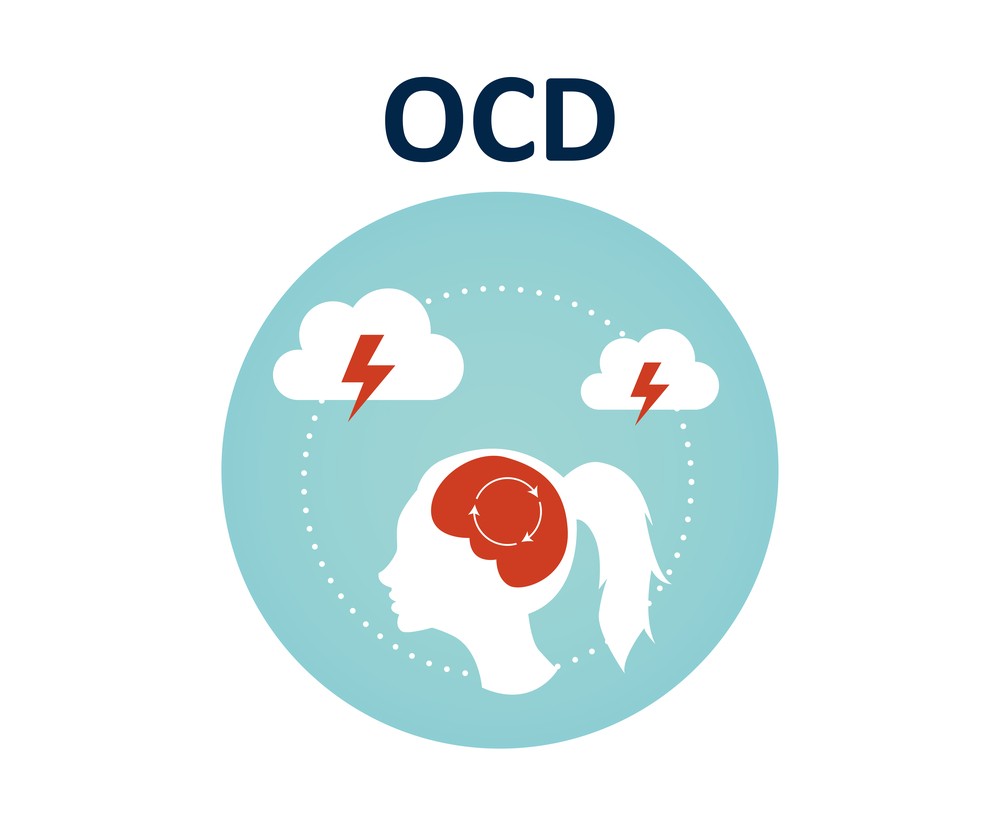
Living with OCD affects not just the individual but the entire family. It’s important to tap into the strength of familial relationships and foster compassion to navigate this challenging journey together.
Support for Family Members
 OCD can be a bewildering visitor to family life, where support for family members becomes a cornerstone of collective wellness. You mustn’t face this alone:
OCD can be a bewildering visitor to family life, where support for family members becomes a cornerstone of collective wellness. You mustn’t face this alone:
- Education is key: Learn about OCD and its impact on family dynamics. Understanding what your loved one is going through can foster empathy and patience. Websites like the International OCD Foundation (iocdf.org) offer valuable resources.
- Communication strategies:
- Open dialogue: Encourage regular family discussions to express feelings and concerns in a safe space.
- Set boundaries: It’s vital to establish limits to maintain a healthy family environment.
- Seek external support: Supporting groups can provide community and shared experiences. These groups offer a platform for exchanging coping strategies and reducing isolation. Find local support groups or online communities through reputable mental health organizations.
Key Takeaway: Encourage education, maintain open communication, and seek support networks to bolster the entire family’s resilience against the strains of OCD.
Parenting with OCD
When you’re a parent with OCD, the dual roles of caregiver and personal wellness advocate can be particularly taxing. Here’s how you can maintain balance and fulfill your parenting duties:
- Routine and structure: Establish consistent routines to create a stable environment for your children. This predictability can be reassuring for both you and your children.
- Self-care: You’re better equipped to care for others while looking after yourself. Seek therapy, practice relaxation techniques, and allow yourself personal time to recharge.
- Involvement: Stay involved in your children’s lives, attend school events and extracurricular activities, and nurture the bond between you.
- Delegation: Don’t be afraid to ask for help from your partner or other family members. Sharing parenting responsibilities can alleviate some of your stress.
Key Takeaway: Parenting with OCD requires you to create a structured environment, prioritize self-care, nurture your parent-child relationships, and share the caregiving burden.
Ongoing Recovery and Maintenance
As you navigate the path of managing OCD, ongoing recovery and maintenance are pivotal for sustaining your well-being. They involve strategies to prevent relapse and foster a support network that stands by you over time.
Relapse Prevention
- Identify Triggers: Keep a diary to note the situations and emotions that precede compulsive behavior.
- Develop Coping Strategies: Equip yourself with techniques such as mindfulness, which can help you respond to obsessions without engaging in compulsions.
- Create a Safety Plan: Work with your therapist on a plan for early intervention if you notice signs of relapse.
- Maintain Routine Therapy Sessions: Regular check-ins with your mental health professional can provide continual guidance and support.
Key Takeaway: Establishing a robust relapse prevention strategy is your safety net and a proactive approach to maintaining recovery.
Continual Support Networks
- Join OCD Support Groups: Connect with others who understand your journey. It’s a powerful reminder that you’re not alone. Find a Support Group
- Lean on Loved Ones: Educate friends and family about OCD so they can offer the right kind of support when you need it.
- Stay Informed: Educate yourself about OCD. Knowledge is a powerful tool in maintaining your well-being.
- Accountability Partnerships: It may be beneficial to have a trustworthy person who can help you stay on track with your recovery goals.
Key Takeaway: Building and nurturing a support network is a cornerstone of surviving and thriving in your recovery journey.
Mental Health Associations and Resources
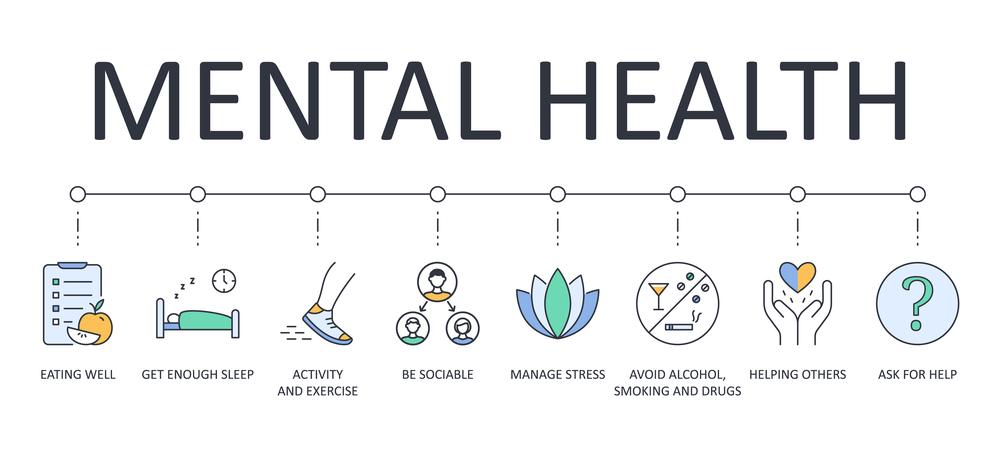 When you’re navigating the complexities of OCD, knowing where to turn for support is crucial. Mental health organizations play an essential role in providing resources, education, and advocacy for individuals affected by OCD and related disorders.
When you’re navigating the complexities of OCD, knowing where to turn for support is crucial. Mental health organizations play an essential role in providing resources, education, and advocacy for individuals affected by OCD and related disorders.
Anxiety and Depression Association of America
The Anxiety and Depression Association of America (ADAA) is a leading organization in the field of anxiety and depression, and that extends to OCD. The ADAA offers:
- A searchable directory of therapists specializing in anxiety, depression, and OCD.
- Diverse educational materials, including webinars and self-help tools.
- Support groups: both in-person and virtual support groups for individuals with OCD.
National and Local Advocacy Groups
Joining forces with advocacy groups can empower you to contribute to change while finding personal support. These groups include:
- International OCD Foundation (IOCDF): In addition to its educational initiatives, the IOCDF has an extensive list of support groups for OCD, available locally and online.
- National Alliance on Mental Illness (NAMI) and Mental Health America (MHA): These organizations advocate for policies that support mental health and provide a wealth of resources, including local NAMI chapters and MHA affiliates that often foster support group settings.
- Mental Health Professionals: Engage with skilled therapists and clinicians who can offer guidance and therapeutic strategies tailored for OCD management.
Always remember, you’re not alone on this journey; organizations like ADAA, IOCDF, NAMI, and MHA are there to support your path to recovery with professional help and strong community backing.
Living with OCD
Obsessive-Compulsive Disorder (OCD) is a mental health condition characterized by intrusive thoughts (obsessions) that produce uneasiness, apprehension, and worry, along with repetitive behaviors (compulsions) aimed at reducing anxiety. If you’re living with OCD, here’s what you might experience:
- Anxiety: You may feel persistent and intense anxiety due to uncontrollable thoughts.
- Depression: It’s not uncommon to feel depressed, as the continual cycle of obsessions and compulsions can be exhausting.
- Shame: Shame is often attached, as you might be aware that your fears and behaviors are not rational, but you can’t break free from them.
Coping strategies:
- Acknowledge Your Feelings: It is okay to accept and recognize your emotions as part of the condition. This is the first step towards managing them.
- Routine: Establish a daily routine to structure your days and limit the time available for compulsions.
Support is vital:
- Connect with support groups; sharing your experiences can be incredibly relieving. It reminds you that you’re not alone.
- Speaking to a therapist can help you understand and manage your OCD. Techniques like Cognitive Behavioral Therapy (CBT) are often effective.
Key Takeaway:
Embrace the support around you and remember that managing OCD is a journey with its ups and downs. Patience and persistence, coupled with the right support, can improve your quality of life.
Frequently Asked Questions
Navigating OCD can be tough, but finding the right support group can make a significant difference. Below are the answers to your questions about OCD support groups.
What are the best online platforms for OCD support groups?
Some reputable online platforms for OCD support groups include the International OCD Foundation (IOCDF), the Anxiety and Depression Association of America (ADAA), and HealthUnlocked. These platforms offer various resources, including community forums and links to local support groups.
How can I find free OCD support groups near my location?
To find free OCD support groups in your area, check out the IOCDF’s resource directory. Local mental health clinics and hospitals also provide information on support groups.
Are there any specific OCD support groups for parents?
Yes, there are OCD support groups tailored for parents. The IOCDF and ADAA websites can direct you to groups designed to help parents navigate the challenges of having a child with OCD.
Can I join an OCD support group that conducts sessions on Zoom?
Absolutely, many support groups now offer Zoom meetings to accommodate those who prefer or need virtual participation. Look for virtual groups on platforms like the IOCDF or ADAA websites.
What type of therapy is most effective for managing OCD symptoms?
Cognitive Behavioral Therapy (CBT), specifically Exposure and Response Prevention (ERP), is considered the most effective for managing OCD. It’s a good idea to seek support groups incorporating or understanding these therapeutic methods.
Where can I locate Christian-based OCD support groups?
For Christian-based OCD support groups, your local church or the Christian Counseling & Educational Foundation (CCEF) website can be a great starting point. They sometimes have links to support groups or community programs that align with a Christian perspective.
- Stress Management: What is the Relationship Between Stress and Addiction? - June 28, 2024
- Exploring Techniques to Maintain a Healthy Lifestyle without Drugs - May 28, 2024
- How Acupuncture Helps Treat Chronic Fatigue Syndrome - May 28, 2024
This site contains affiliate links to products. We will receive a commission for purchases made through these links.

